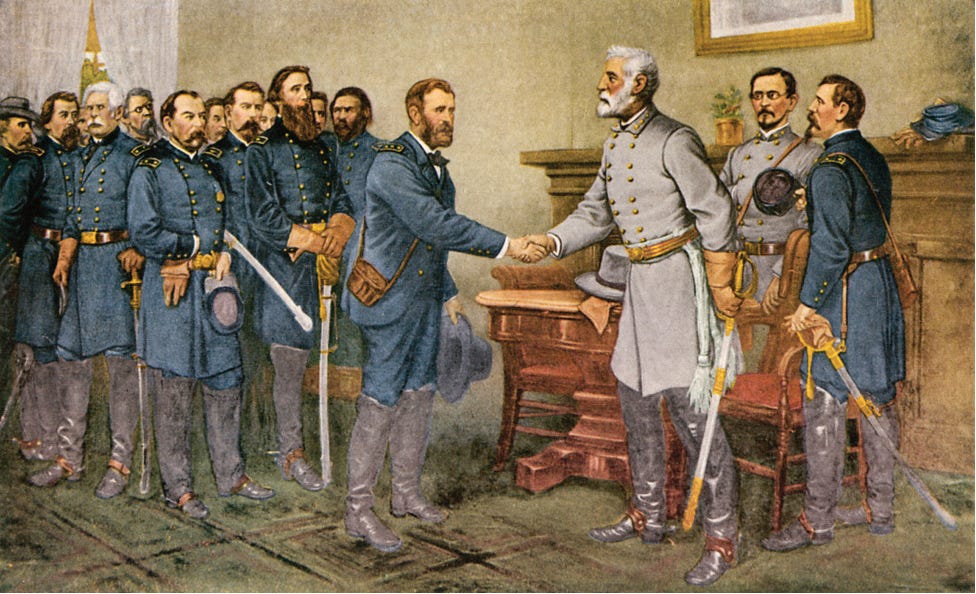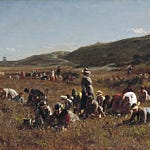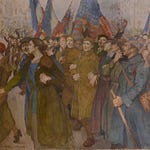“Peace is the tranquility of order,” said Saint Augustine. I love that saying. Even to think of it soothes my soul. Imagine, not having to try to reinvent the world, but to let the order of creation guide your steps. It lets you breathe a little, doesn’t it? You enjoy peace — our Word of the Week.
Yes, I know that not everything in the human world is right, and even the most peaceful of gardeners will have to struggle against thorns and thistles, not to mention droughts and storms. People say you can’t have peace unless you have justice, and there will be some among us who make sure you won’t be left alone until that happens. Sometimes they’re right; sometimes not. All settled injustice in a stable society is like a physical deformity in a body that’s otherwise not dying. The body would be better off without the deformity, but hunchbacks and men with a gimpy leg do learn to get along anyway, and so we may say they’re in health, even though they’re not, strictly speaking, whole. The "peace" they enjoy is a settlement, a coming to terms with a condition that is not going away. Other kinds of injustice strike at the heart, and they’ve got to be flushed from the system, or they will kill — though it may be a long time before the sufferer finally dies. Such a body is in a state of constant war against itself, so that when the streets are quiet and the heart is stable, what we have is not peace but only a truce.
Still, there never has been, and there never will be, a human society without daily injustices, because we people are what we are. To say then that we can’t have peace until we have something like a perfect social system (if we could even agree on what would be good) is to stretch the word beyond all ordinary use. Forbearance here is the necessary virtue. We agree to put up with a lot of bad things that happen because people are sinners. We even agree to put up with (while we work to ameliorate them or to persuade people to repudiate them) customs and laws that are unjust but that don’t keep us from doing the ordinary work of human life. We keep the PEACE.
That’s not because we’re lazy or craven. We do it because the PEACE — even such peace as we can enjoy on earth — is in itself a very good thing. And you can’t always be embroiled in great movements for justice, no matter who is leading them, with what cause, to what end, and by what innocent means. You’ve got to feed the family. You’ve got to teach the children. You’ve got to tend the garden. You’ve got to repaint the walls. Why, there’s even bridge and chess and backgammon to be played! You can’t for the sake of peace disturb the peace, unless, as I’ve said, the patient is in dire straits. You may end up killing the patient you say you want to heal, supposing you really do want to heal him.
The word peace, like most of our short words in which C sounds like S, comes to us from Latin through medieval French. Its parent was Latin pax, a word with something of a verbal force. That is, it didn’t describe just a state of being, but an action: people have come together to agree to leave one another unharmed. The verb underneath it is pangere, to fix, to make fast: so you and your neighbors come to a pact. A lot of these things are just understood. When I was a boy, one feature of our neighborhood “pact” was that kids could cross through anybody’s back yard, so long as they didn’t come too near the house. We got along. But the Jewish and Christian scriptures lend another dimension entirely to the concept of peace: true concord, blessedness, fulfillment. That is why the City of God is Jerusalem: the City of Peace. As the lovely Piccarda says to Dante, in Paradise, “Ne la sua volontade è nostra pace,” “In His will is our peace.”













